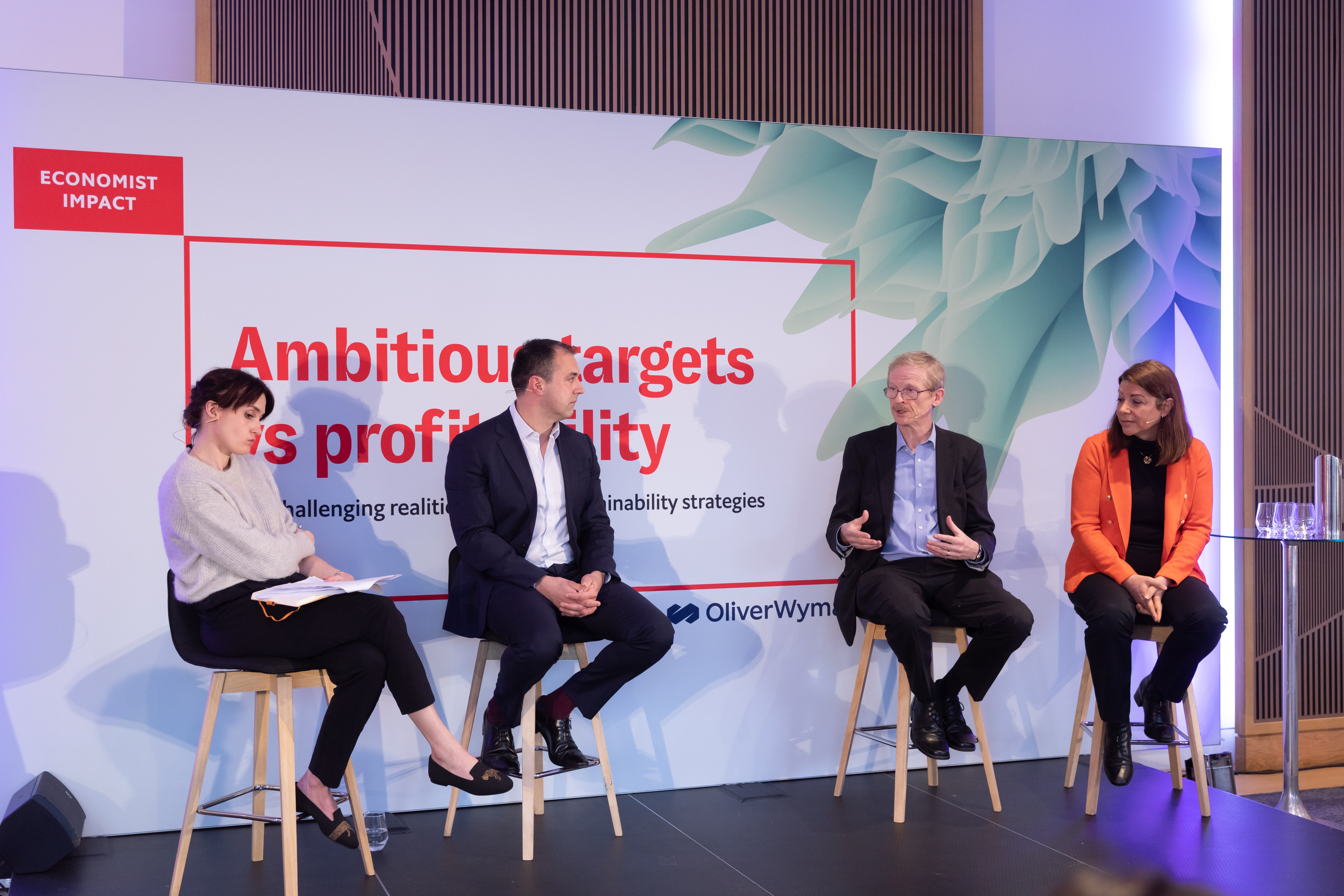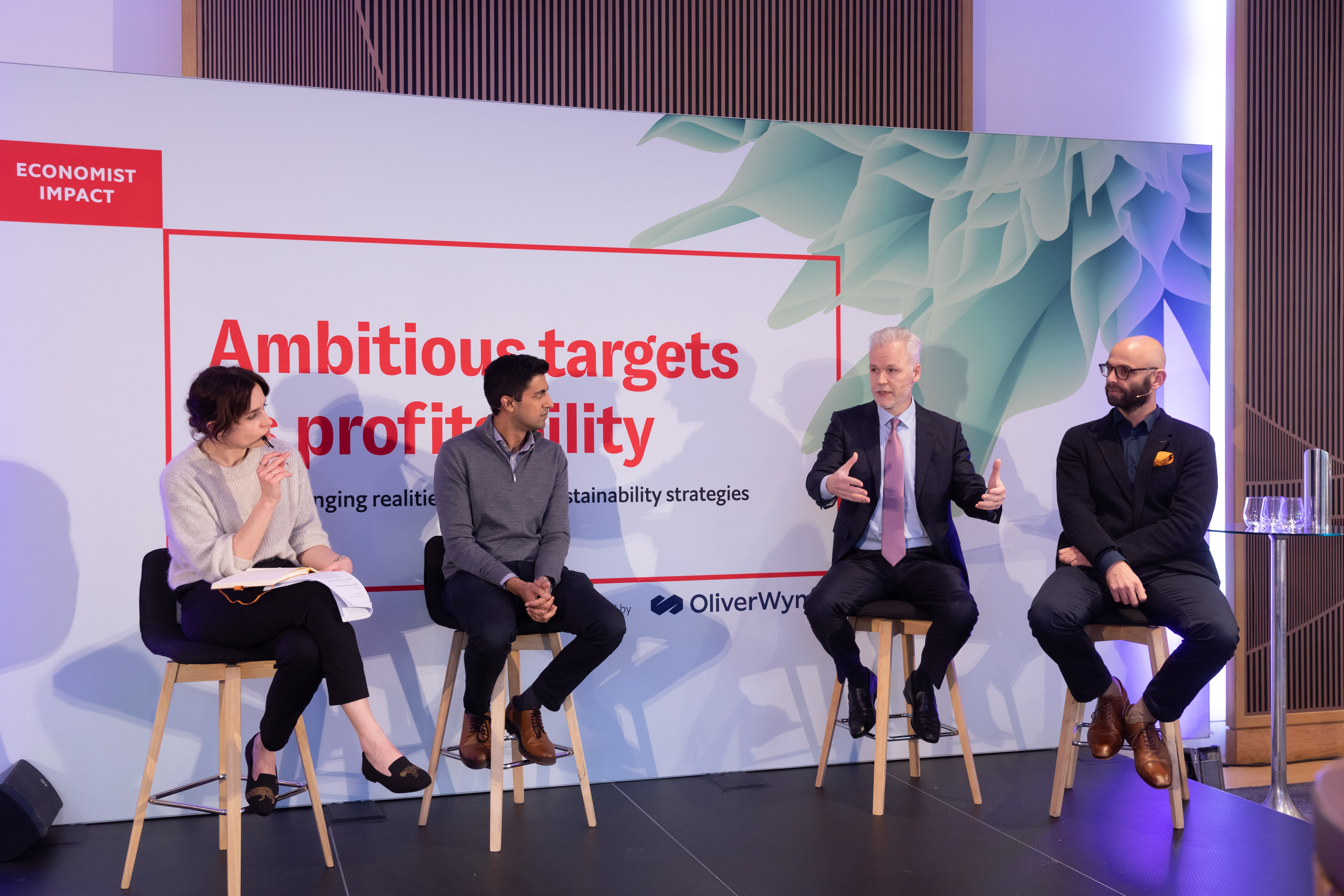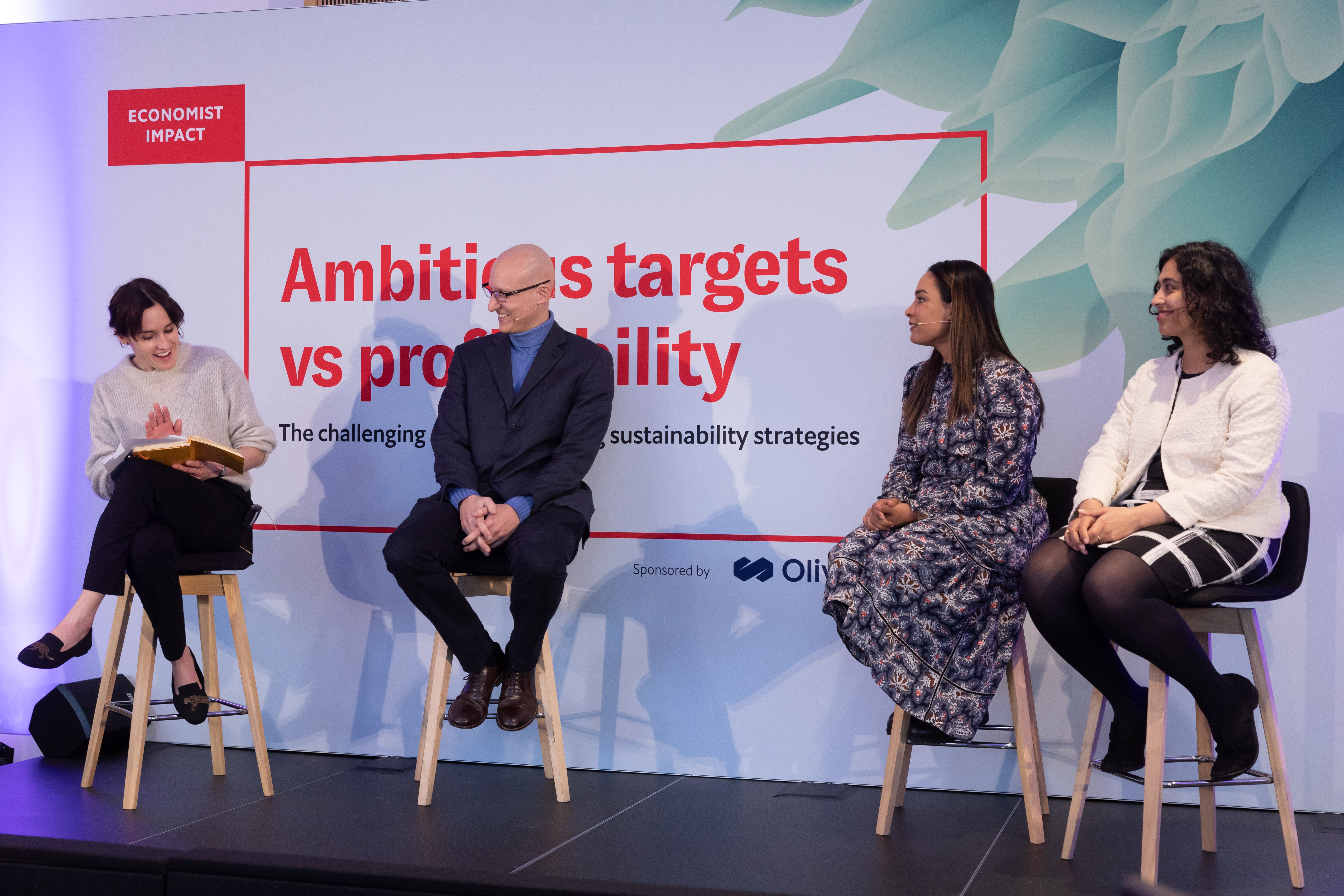Overview
The most recent Intergovernmental Panel on Climate Change report, released in April 2022, gave a bleak warning: the world is on track for at least 3°C of global heating above pre-industrial levels. Even with continued decarbonisation efforts, significant, unavoidable climate impacts will be detrimental to millions of people. To most, it has been clear for a while that action is needed. A transition phase has been allowed—but it is becoming increasingly clear that time is running out.
Today, instituting a sustainability strategy is good business. And with stricter environmental regulations coming soon, companies must position themselves to execute business development hand in hand with a robust sustainability strategy.
This half-day and in-person event, hosted by Oliver Wyman and Economist Impact, brought together business executives looking to navigate the challenges of balancing their sustainability and commercial goals. Attendees shared experiences and debated future outcomes throughout analytical and interactive sessions.
Agenda
Transition of any kind is a challenge. Adapting to a sustainability focus is an additional concern for already complex business operations. What does effective climate leadership look like? How can leadership create radical transition planning that is truly actionable? What needs to be considered to ensure that plans can be financed and executed swiftly? Should every leadership committee always have a dedicated sustainability executive to ensure greenwashing is banished for good and to ensure accountability? What incentives need to be put in place to achieve results?
Environmental, social and governance (ESG) have moved from being niche to mainstream as business leaders redefine the purpose of a corporation to serve a wider range of stakeholders and investors. In order for sustainability strategies to scale companies must establish strategies built on the overall evolution of the business, rather than standalone climate initiatives. In the past, most companies have developed a framework for sustainability, but have been largely unsuccessful in reaching their goals. What are the main roadblocks to scaling sustainability activities? Collaboration and greater integration with internal financial teams are critical to scaling effectively. How do you grow from affordable, low-risk initiatives to truly transform business? How can companies with smaller budgets succeed?
In 2024 the Corporate Sustainability Reporting Directive (CSRD) will enter into full effect across the EU and will also affect many companies in the UK, replacing the previous directive on non-financial reporting. The new directive will demand that organisations provide more robust internal analysis of sustainability issues to strengthen sustainable investment. Companies must now ensure they can track and disclose carbon emissions throughout the value chain, in line with CSRD and other new requirements. What are the best implementation strategies for carbon accounting? How do you get started and choose between various carbon-accounting solutions? What partnerships and technologies should be considered? Can automation or AI do the work for you?
In this interactive session, the audience will be presented with two discussion points on a key topic. The floor will have their chance to discuss, debate and discover what their peers think.
Speakers











Photos
















